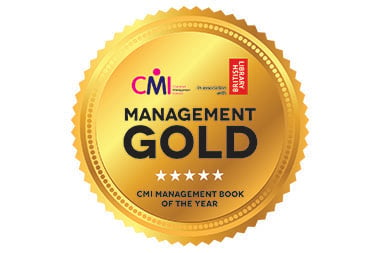The five-minute management idea: Financial literacy for all
 Your weekly shot of new thinking for business leaders: as high-profile insolvencies fill the press, we need to boost financial understanding across the workforce
Your weekly shot of new thinking for business leaders: as high-profile insolvencies fill the press, we need to boost financial understanding across the workforce
Guest blogger Si Hussain
A few years ago I sat with a team of managers and business leaders to listen in to their quarterly financial performance meeting (a dry-run for a “town hall” gathering in which staff members hear about the business and its performance).
The meeting was intended also to evaluate strategies that might be deployed to improve the bottom line. I had been invited because of my relevant industry experience; the finance director also felt I might provide some external credibility to the strategic discussions.
Seventeen minutes into the financial director’s presentation I felt obliged to interrupt to pose two questions to the assembled audience. My questions were:
The financial questions managers need to ask their workforce
“How comfortable are you with the financial terminology being used”?
“Can you relate the financial discussions to your role or sphere of influence?”
My questions were intended to surface what I believe to be a significant oversight in many businesses. The level of financial terminology and understanding presumed by business leaders is often different to the actual level of understanding of the audience. There exists an “expectation gap” in financial knowledge.
What ensued was an open and honest discussion amongst the 15 or managers and directors gathered at the meeting.
Problems with financial understanding that may exist in your team now
Some of the discussion is captured below:
- The marketing director articulated a lack of confidence about basic financial terminology. He was not willing to ask “basic” questions around finance terminology because he had been with the organisation so long that he felt that senior managers would “expect him to know”.
- The sales manager said she understood what was being said but could not see the link between sales performance and the quarterly financial performance.
- The HR manager wanted a better understanding of how the timing of staffing decisions impacted the “bottom line” but felt this had never been adequately explained.
- The divisional director was not clear how the timing of capex decisions affected the financials
In 2017, Stuart Warner, and myself wrote The Finance Book to support the professional (from a non-finance background) who needs to grasp financial concepts and terminology quickly and efficiently and understand why they matter.
It is true that a business can be successful despite gaps in financial understanding. However I believe that a workforce that is confident in its understanding of finance will always be better placed to achieve more and feel engaged with the conversation.
It includes key words you might here in all boardroom conversations.
Definitions of basic financial terminology everyone should know
Tangible fixed assets
Assets that possess physical substance. Examples include land, property, equipment and motor vehicles. The term fixed denotes an intention by the company to use the asset within the business over the long term (in excess of one year) to generate revenues over many years. This is in contrast to current assets like stock, where speed of sale is often considered a key objective.
Debtors and Creditors
Credit is one of the cornerstones of modern business. The majority of companies offer and receive credit. Customers who receive credit are known as debtors (or receivables). Suppliers who offer credit are known as creditors (or payables). Debtors are assets as they will be a future cash inflow or 'benefit'. Creditors are liabilities as they will be a future cash outflow or cost.
Goodwill
A company is typically worth more than the sum of its parts and this difference is due to goodwill. Goodwill is a hidden asset (also referred to as "inherent goodwill") in most businesses and exists because of factors such as reputation, location, market position, customer and employee loyalty.
What makes goodwill unique and distinguishes it from other assets is that it cannot be separated from the business to which it relates; it cannot be sold or transferred, or exist separately from the business. It can be thought of as DNA value in a business.
Opex and Capex
Opex (operating expenditure) is money spent on running a business. It is recognised in the profit and loss account. Capex (capital expenditure) is money spent on "long term investments". It is recognised in the balance sheet.
Next time you are invited to a town-hall meeting to listen to business leaders talk finance, go prepared.
Si Hussain and Stuart Warner are authors of The Finance Book. It is published by Pearson. It is nominated for Management Book of the Year 2017/2018 in the Practical Manager category. For more information see http://yearbook.managers.org.uk/about/the-competition

Press & Media Enquiries
For more information or to request interviews, contact CMI's Press Team on 020 7421 2705 or email press.office@managers.org.uk


